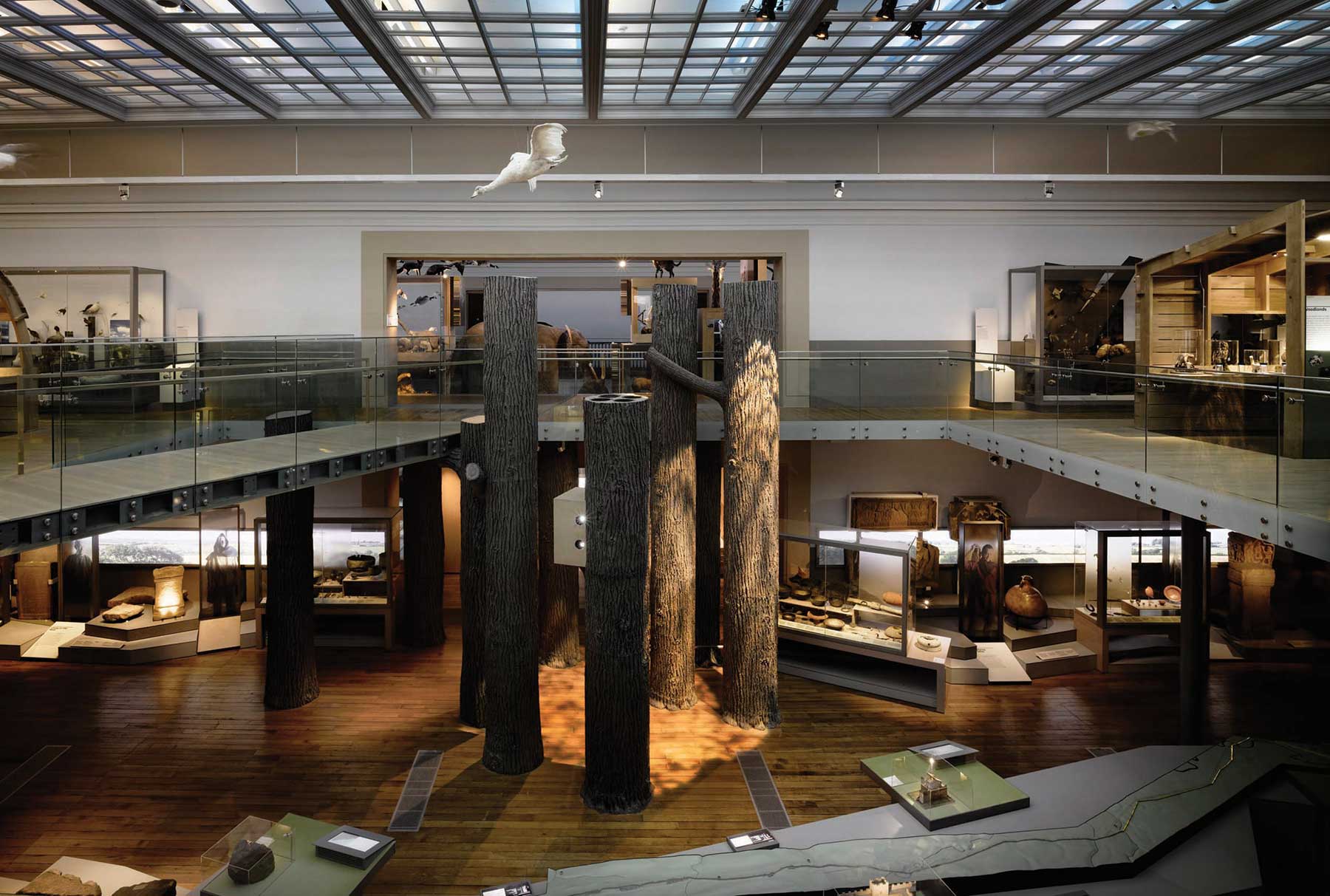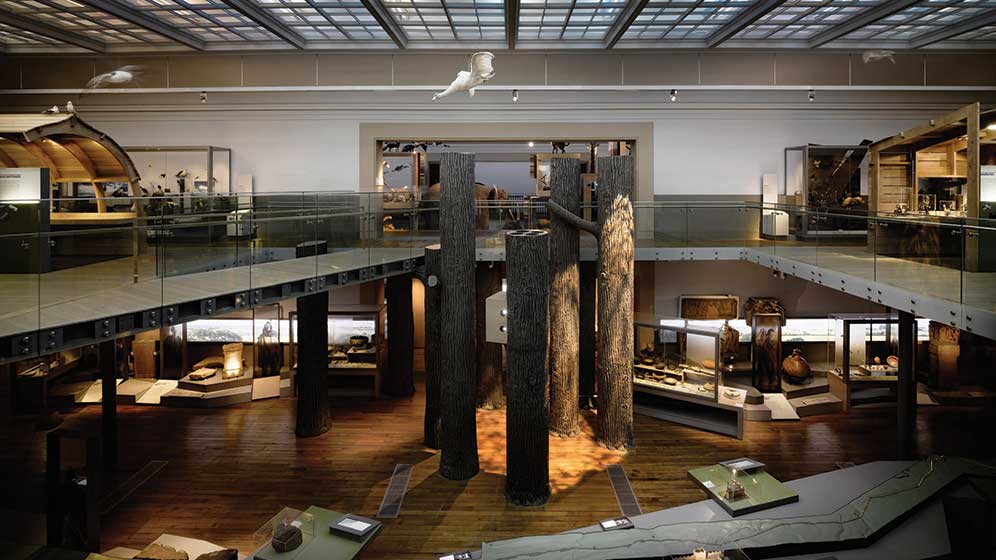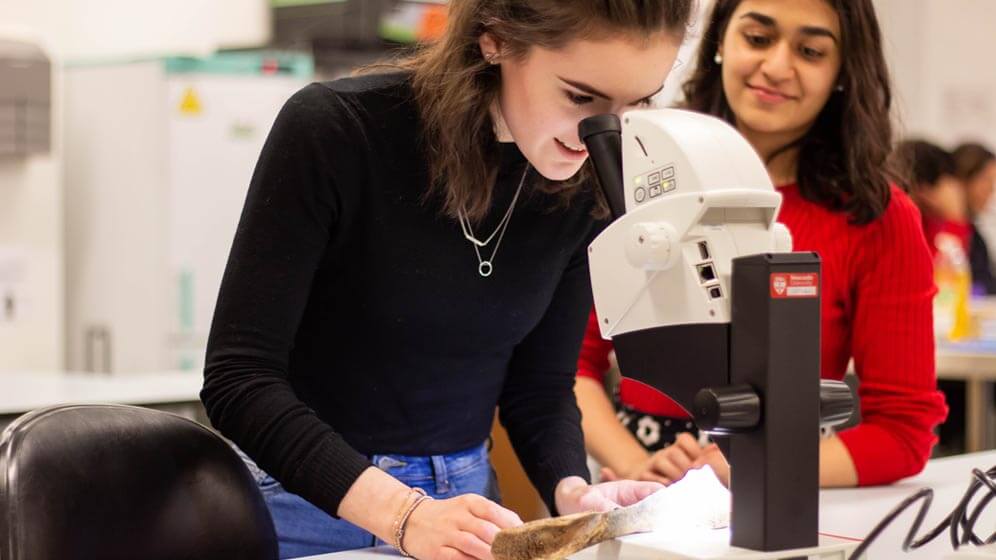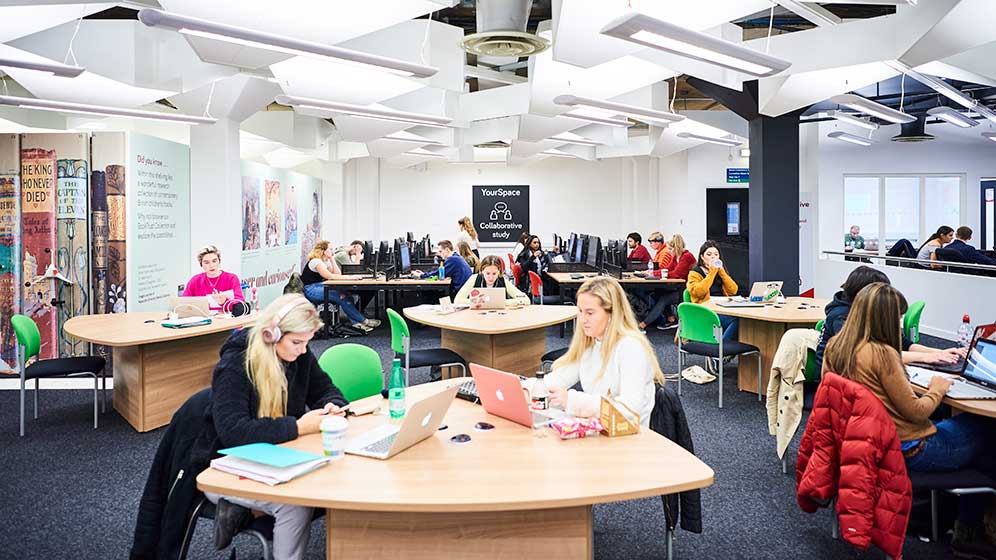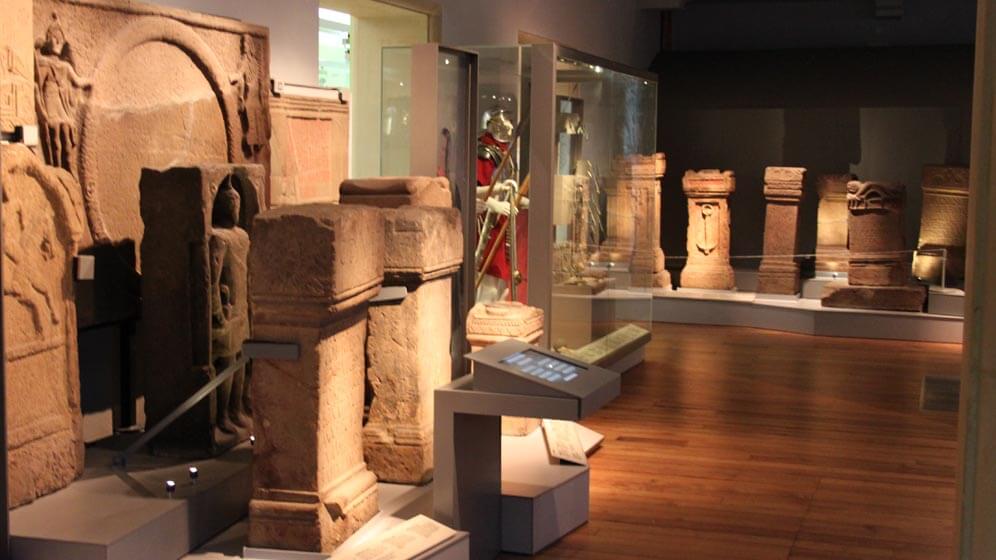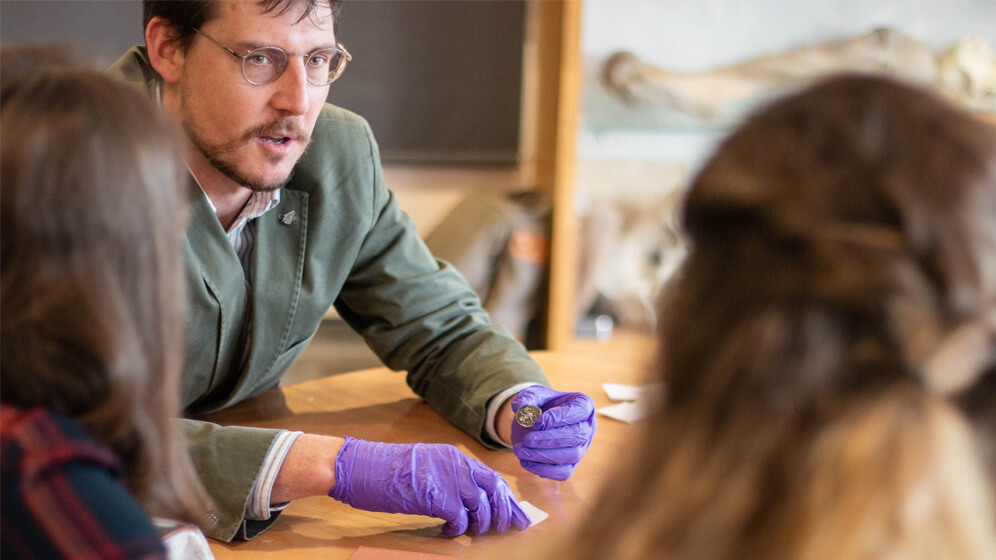Facilities
Students and researchers have access to extensive museum and library collections alongside state-of-the-art laboratory and field equipment.
Museums & Archives
Our libraries and museums hold extensive historical and archaeological collections, including materials of local importance and extensive collections from Classical Greece and the Roman Empire. Our on-campus museum, The Great North Museum: Hancock, is an extension to our classroom and allows us to explore material collections from prehistory to modern day, from around the globe.
Great North Museum: Hancock
Explore material evidence of past people from the earliest prehistory to the Modern day. Learn about known individuals who lived in the area.
The museum boasts the latest technology and an impressive library. They help visitors develop their interests and explore the region with fresh eyes.
The museum houses the collections that previously made up the:
- Hancock Museum
- Shefton Museum of Greek Art and Archaeology
- Museum of Antiquities
It's also home to the Natural History Society of Northumbria collection. This includes fine Egyptian and ethnographic collections. There's also material relating to the geology, flora and fauna of the region.
There's also the Shefton Museum collection which is heavily incorporated in some of our teaching. These include materials from the classical Mediterranean periods including:
- Etruscan
- Ancient Greek
- Roman Imperial
It contains particularly important collections of Classical Greek pottery and armour.
The Great North Museum Resource Centre
The Great North Museum Resource Centre is at the Discovery Museum, only a 15-minute walk from campus. This museum houses the reserve natural science and archaeology collections that are not on display to the public.
These comprise more than half a million items as well as extensive archives previously held in the Museum of Antiquities.
They include:
- the Hadrian’s Wall Photographic Archive
- the Aerial Photographic Archive
- a range of archaeological site archives from across the North East of England
The Gertrude Bell Archive
Explorer, mountaineer and diplomat, Gertrude Bell (1868-1926) was also a pioneering archaeologist in the Middle East and established the Iraq Museum in Baghdad. Her archives are held within our school and have been inscribed in the UNESCO International Memory of the World Register.
The Gertrude Bell Archive consists of:
- about 1,600 detailed and lively letters to her parents
- her 16 diaries, which she kept while she was travelling
- c.40 packets of miscellaneous items
- about 7,000 photographs, taken by her c.1900-1918
Documents describing Middle Eastern archaeological sites are of great value. They record structures that have eroded or, in some cases, have disappeared altogether. Documents recording her experiences with desert tribes are of considerable anthropological and ethnographical interest.
Sorry, you need JavaScript to view this video
The Philip Robinson Library
The award-winning University Library provides access to:
- 3,200 study spaces and 790 desktop PCs
- one million print books
- two million ebooks, including historic and contemporary collections
- over 46,000 journal titles, with most being accessible online
- a wide range of specialist online resources, including:
- newspapers from the 17th century to the present day;
- research databases, such as Historical Abstracts
- audiovisual resources
- digitised archival collections, such as:
- Electronic Enlightenment
- Slavery, Abolition and Social Justice
- Mass Observation Online
- African American Communities
The library supplements face-to-face support using:
- social media
- innovative campaigns
- virtual enquiries
The University's main library is within five minutes' walking distance of the School. It has more than 1,900 study spaces, including areas for group discussion and silent research. It's open 24/7 during term time.
Visit our library subject guides for an overview of:
- the library's resources for history, classics and archaeology
- information about access to libraries and resources elsewhere
- advice on getting the best out of the library
- regularly updated news
To see the library and its facilities, you can also take a virtual tour.
The Marjorie Robinson Library Rooms
The Marjorie Robinson Library Rooms is the newest addition to the University Library. It's a short walk away from the Philip Robinson Library. It's a truly digital library. It offers space to study, think, learn, collaborate and consult. It contains more than 700 study spaces, including:
- silent study
- group work areas
- bookable study booths
Cowen Library
The School’s Cowen Library is located in the Great North Museum: Hancock Library, on the second floor.
The library contains books and journals on archaeology and ancient history. Some material date from the 17th century to the current day. It has more than 10,000 books in stock, which include:
- local, national and international archaeological reports
- books on Hadrian’s Wall and Roman Britain
- a large collection of the British Archaeological Reports series
- books on Roman archaeology and Egyptology
- books on the archaeology of the Mediterranean, especially Byzantine Empire
- material on archaeological theory, practice and history
It provides excellent space for study or revision, with PCs on the University network. The University Wi-Fi service is also available.
Additionally, the library includes the collection of the Society of Antiquaries of Newcastle upon Tyne, containing a wealth of archaeological and historical material. There's a strong emphasis on Hadrian’s Wall and Roman Britain. The library and archive of the Natural History Society of Northumbria are available.
Other libraries
As a student of Newcastle, you have reciprocal access to most other academic libraries in the UK. This is via the SCONUL access scheme. You could join Newcastle City Library and the Literary and Philosophical Society library.
Wolfson Archaeology Laboratory
The Wolfson Archaeology Laboratory is a research and teaching laboratory and where we conduct most of our laboratory and analytical training. It is also an active research lab and hosts collections from various sites in the UK, including:
- an animal bones reference collection
- a thin section and microfossil slide collection
- Roman pottery collections
- post-Medieval metalwork and ceramics collections
Specialist equipment includes
- facilities for soil, pollen, phytolith and other microfossil sample preparation
- facilities for use-wear analysis of bone, stone, metal and glass objects
- furnaces for research into material culture, archaeo-materials and ancient technologies through experimental archaeology.
The Wolfson Archaeology Laboratory is in the King George VI building, room 2.60. You can book it through the University booking system.
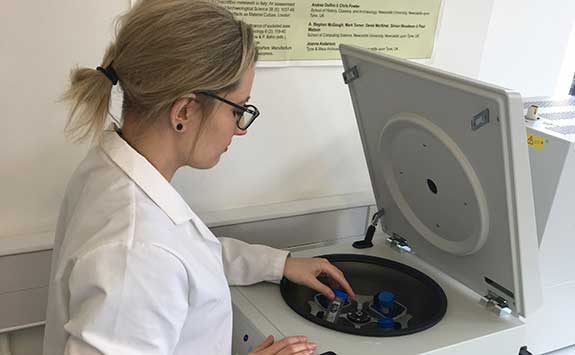
Earthslides laboratory
Our Earthslides laboratory is a research facility providing collaborative and commercial services in thin section preparation and analysis.
Thin section micromorphology is a technique that was originally developed in soil science, to look at the formation and structure of soils. It has become an increasingly used tool in archaeological contexts, to examine the formation processes of archaeological sediments and materials.
Newcastle Material Culture Analytical Suite
Our Newcastle Material Culture Analytical Suite facilitates the full process of research, analysis, recording, conservation and display of material culture and collections. NeMCAS is a partnership between Newcastle University and the Great North Museum.
Facilities include a range of specialist microscopes, a spectroscopy suite, 2D and 3D scanning equipment and computed tomography (CT) facilities. Click here for more info.
Computing
Each student has a personal University e-mail address and free access to the internet. There are computer clusters around the campus and two of the largest are within walking distance of our School, in The Old Library (building next to ours) and The Philip Robinson Library (a 5 minutes’ walk away).
Cluster facilities
Computing facilities include:
- more than 1,400 networked PCs in 44 clusters
- hundreds of computers owned by academic schools
- fast campus network and internet connections
- an extensive range of software including word processing, statistical and database packages
- central filestore and print services
- a Unix service with several powerful central systems via Linux workstations
Cluster rooms across campus are open each weekday. There's also one in both Henderson Hall and Castle Leazes halls of residence. Some cluster rooms are also open for extended hours and at weekends (some are open 24 hours).
